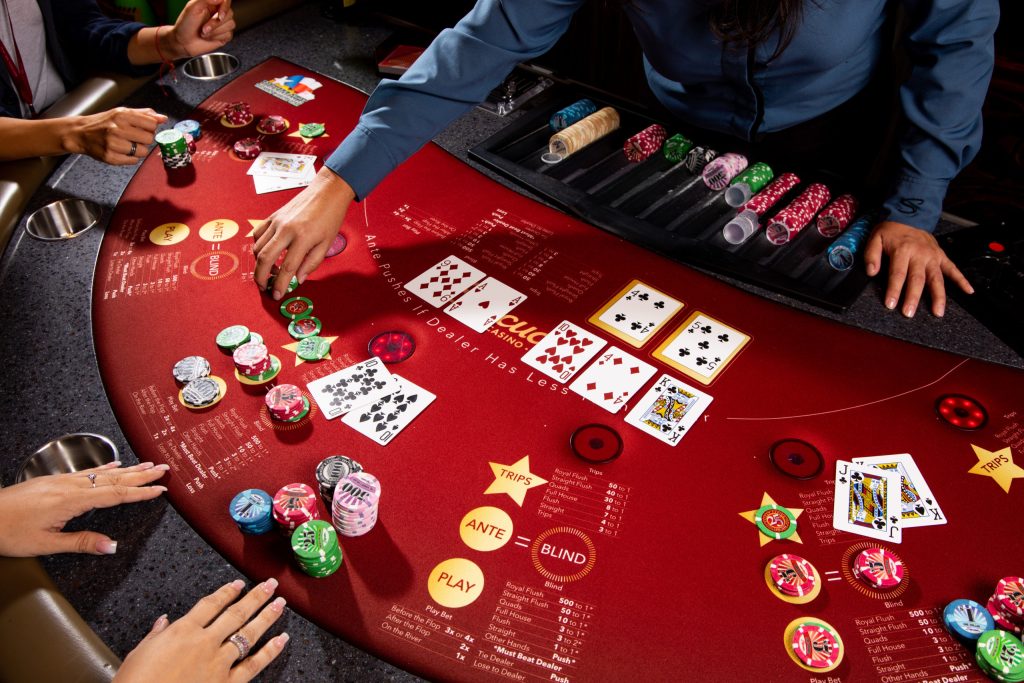Real-Time Data Streaming in Blockchain Casino Environments (Advanced Guide)

As the online casino industry continues to embrace blockchain technology, the need for real-time data streaming becomes increasingly important. Real-time data streaming allows for continuous and instant updates of game state, player transactions, and other critical information, providing an enhanced experience for both players and operators. This is particularly relevant in blockchain-based casinos, where the decentralized nature of the network requires innovative solutions for quick, efficient data processing.
In this advanced guide, we will explore how real-time data streaming works within blockchain casino environments, the benefits it provides, and how to implement it effectively. We will also discuss SDLCCorp’s expertise in Blockchain Casino Game Development Services, and how we help integrate real-time data streaming solutions into your blockchain-based casino platform.
What is Real-Time Data Streaming?
Real-time data streaming refers to the continuous transmission of data from a source to a destination, where it is processed and displayed almost instantly. In the context of blockchain casinos, real-time data streaming involves the live transmission of game data, transactions, player actions, and outcomes to ensure that the game state is always up-to-date.
For blockchain casinos, this is particularly critical. Every action taken by a player, such as placing a bet, winning a round, or withdrawing funds, needs to be recorded and reflected in the game in real-time. Because blockchain networks can experience latency issues due to their decentralized nature, efficient data streaming solutions are essential for maintaining seamless gameplay and a positive user experience.
Key Components of Real-Time Data Streaming in Blockchain Casinos
- Game State Updates: These include changes in the game’s status, such as player actions (betting, winning, losing), game outcomes, and real-time balance updates.
- Transaction Data: Blockchain casinos require instant updates for deposits, withdrawals, and payouts. Real-time data streaming ensures that players are informed of transaction statuses immediately.
- Player Interactions: Any player actions, like placing bets or participating in bonuses, must be updated in real time to reflect on the platform without delays.
- Event Streaming: For games that depend on external events (e.g., sports betting), real-time data streaming must process and relay data as soon as the event results are available.
Benefits of Real-Time Data Streaming for Blockchain Casinos
1. Enhanced User Experience
The primary advantage of real-time data streaming is the improved player experience. In traditional casino settings, players expect instantaneous feedback about their actions, whether it’s confirming a bet or notifying them of a win. In the world of blockchain casinos, this expectation extends to both in-game actions and blockchain transactions.
For instance, when a player places a bet, they want immediate feedback regarding the bet’s acceptance, outcome, and transaction status. With real-time data streaming, these updates are transmitted instantaneously, ensuring a smooth and responsive user interface. By integrating data streaming, casino platforms can create a faster, more interactive experience where players can make real-time decisions based on up-to-the-minute information.
Moreover, real-time updates prevent lag, which can be a major deterrent in a competitive gaming environment. The more responsive and immediate the system, the more engaged players become, increasing retention and satisfaction.
2. Transparency and Trust
Blockchain technology inherently promotes transparency by providing an immutable record of every transaction. Real-time data streaming takes this transparency a step further by ensuring that all players have access to live updates regarding game events and outcomes. This level of visibility fosters trust among users, as they can verify their transactions and game results in real-time.
For example, in a blockchain casino, when a game outcome is determined, players should be able to view the result immediately. Any delay in updating the game’s state could create doubts about the fairness of the platform. With real-time streaming, all updates, including transactions and game events, are transparent and verifiable, creating a fair environment that increases player confidence in the platform.
3. Faster Transaction Finality
Blockchain casinos often handle various cryptocurrencies, requiring players to deposit, withdraw, and transfer tokens. Transaction finality—the point at which a transaction cannot be altered or reversed—needs to be as fast as possible to avoid delays that could disrupt the gaming experience. Real-time data streaming allows players to see the status of their transaction immediately, ensuring they know whether a deposit, withdrawal, or payout has been successfully processed.
For casinos using Layer 1 blockchains (e.g., Ethereum), transaction finality can sometimes be delayed due to network congestion or high gas fees. By integrating real-time data streaming, platforms can provide players with timely notifications of transaction statuses, such as pending or confirmed, so they are always in the loop.
Implementing Real-Time Data Streaming in Blockchain Casinos
1. Leveraging WebSockets for Low-Latency Communication
To enable real-time data streaming, blockchain casinos often use WebSockets, a communication protocol that enables full-duplex, low-latency communication between a client and a server. WebSockets are particularly useful for applications that require live updates and instantaneous responses, such as in gaming and betting platforms.
Unlike traditional HTTP requests, which require the client to continuously make requests to the server for updates, WebSockets allow the server to send data to the client as soon as new information is available. This allows real-time updates of game states, transactions, and player interactions without the player needing to refresh the page or make repeated requests.
By implementing WebSockets into your casino game platform, you can ensure that players receive instant updates for game events, balance changes, and transaction statuses, creating a much smoother and more responsive user experience.
2. Smart Contracts and Event-Driven Data Streaming
Smart contracts are integral to blockchain casinos, as they automate betting processes, determine game outcomes, and manage payouts. For real-time data streaming, event-driven architecture can be implemented within smart contracts to emit events whenever a specific condition is met, such as a player winning a game or completing a transaction.
These events are then streamed to clients in real-time using WebSockets or similar technologies. By leveraging event-driven smart contracts, developers can ensure that players receive timely updates on game results, transaction completions, and other critical events.
For example, in a decentralized poker game, when a player wins a hand, the smart contract can emit an event with the result, which is then streamed to all connected players. This guarantees that all participants are immediately informed about the game outcome, contributing to a more interactive and engaging experience.
3. Scalable Infrastructure for High Traffic
Real-time data streaming requires robust and scalable infrastructure to handle high volumes of traffic, especially when the platform grows in size and popularity. As blockchain casinos often experience a large number of simultaneous transactions, developers must implement horizontal scaling to ensure that the system can handle an increase in data streams without compromising performance.
Cloud solutions like AWS or Google Cloud provide scalable services that can be used to manage real-time data efficiently. These platforms offer tools for scaling both compute resources and database systems based on demand, ensuring that the platform can handle traffic spikes without performance degradation.
SDLCCorp’s expertise in Blockchain Casino Game Development Services includes building scalable infrastructure that ensures optimal performance, even during periods of high user activity. We help clients integrate high-performance data streaming technologies into their platforms, ensuring a seamless and efficient experience for players.
SDLCCorp’s Expertise in Real-Time Data Streaming for Blockchain Casinos
At SDLCCorp, we specialize in Blockchain Casino Game Development Services, including the integration of real-time data streaming solutions for blockchain-based casino platforms. Our team of blockchain experts works closely with clients to design and implement high-performance data streaming systems that ensure fast, secure, and scalable gameplay.
We offer:
- WebSocket integration for real-time communication
- Smart contract development for event-driven data processing
- Scalable infrastructure solutions to handle high traffic
- Custom data streaming solutions that align with your platform’s unique needs
SDLCCorp ensures that your casino platform can deliver real-time updates on game states, player actions, and transactions, providing an immersive and engaging experience for your users.
Conclusion
Real-time data streaming is an essential component of modern blockchain casinos. By enabling instant updates of game events, transactions, and player interactions, data streaming ensures a smooth and immersive player experience. For casino operators, it offers enhanced transparency, faster transaction finality, and improved scalability.





